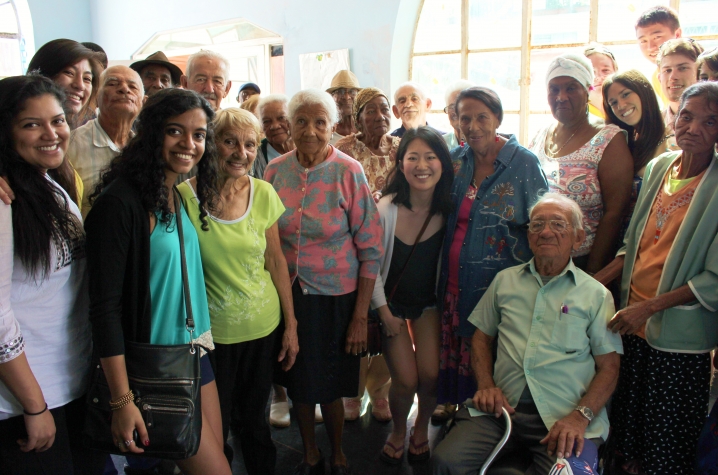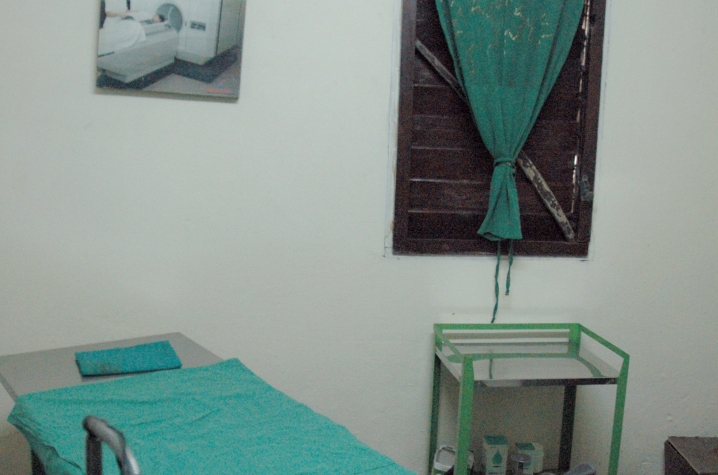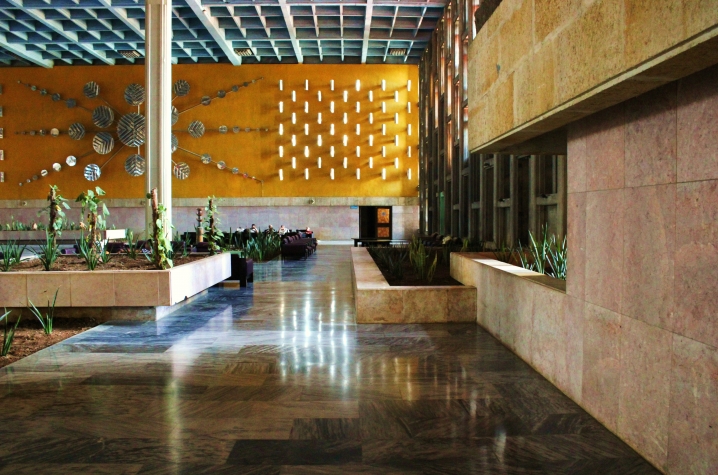UK Medical Students Observe Cuba's Socialized Health Care System
LEXINGTON, Ky. (May 1, 2014) - The flight from Miami to Havana, Cuba, only lasted about 50 minutes - a short trip to a country that seemed so distant from America for a group of 16 first-year University of Kentucky College of Medicine students.
During a trip to learn about Cuba's socialized health care system, a group of UK students were surprised to find that Cubans knew much more about American culture than Americans knew about Cubans. The young Cubans they met could name American historical figures like Martin Luther King Jr. and popular television shows like How I Met Your Mother. They could also discuss U.S. policy issues, like the Affordable Care Act, or "Obamacare."
"Honestly, the only thing we know about Cuba is the missile crisis, the Bay of Pigs and Fidel Castro," said Angela Dao, a medical student from Elizabethtown, Ky.
The UK medical students returned from Cuba with an enhanced understanding of the country's history and culture, as well as an appreciation for many aspects of its government-run public health system. Along with the students, UK political science professor Peter Berres and UK College of Public Health professor Dr. Katherine Eddens traveled to Cuba in March through Witness for Peace, a nonprofit that awards U.S. citizens temporary people-to-people licenses to enter Cuba for educational purposes. Cuba, which has remained economically isolated from the United States since an embargo set in place in the 1960s, is characterized as a socialist country governed by the Communist Party.
Cuba's universal health care system emphasizes prevention and education through community-based clinics and widespread public health education. Health care is a free service to everyone and doctors live and work in the neighborhoods where they practice. With more personalized medical care, the Cuban system engages multidisciplinary teams of providers and specialists. The government provides facilities for herbal and alternative medicine, which engage patients through art and music therapy.
Berres, who retired as assistant dean of the UK College of Health Sciences but continues to teach political sciences courses, coordinates trips to Cuba to provide students with a platform to evaluate the American medical system. Getting a close look at the accomplishments of the Cuban system, students are challenged to broaden their perspectives on global health care systems and reflect on their personal values in medicine. Many students commented that the experience will make them "better physicians" in the future.
"As a system that provides universal health care - for free - to every Cuban and for any and every possible medical condition or situation, the Cuban system stands in sharp contrast to the American medical system," Berres said. "It provides reference points for thinking critically about our own system - its functioning and values - and provides credible differences for evaluating our own health care."
UK medical student Nivi Umasankar, who is from India, said she enjoys learning about the pros and cons of health systems around the world. While she was impressed with how Cuba's socialized system ensured more personalized care, she noted that the pay rate for doctors is low and only one ambulance is assigned to each province. She hopes she can bring the Cuban's concept of personalized medicine to her own practice when she becomes a doctor.
"They think universal health care is a right," Umasankar said of Cubans. "It doesn’t matter if you are affluent or you're poor there."
Fulfilling his father's long-time dream of visiting Cuba, medical student Andrew Brod participated in the trip to learn more about global health care. Brod, who is from Michigan, was especially fascinated with Cuba's biomedical research institute, which has developed vaccines and drugs targeting diabetes and lung disease - the most prevalent health problems in the country. Brod said the country's progressive vaccination program can be attributed as one reason Cuba has a low child mortality rate. Still, he said, limited external resources in Cuba hinder the development and availability of biomedical technologies that are widely available in America.
"They pick their pressing problems and send their resources there," Brod said of Cuba's biomedical research.
During their visit, the students toured medical facilities representative of each of the three levels of Cuban medical care: primary, secondary and tertiary. In addition, the students visited organic farms, dance studios, research institutes and other government-run facilities. Dao, whose negative perception of senior living facilities was based on her experiences in the United States, was surprised to see the high quality of life seniors enjoyed through Cuba's elderly daycare programs.
"These old men and women were laughing, and they told us how excited they were that we came to Cuba," Dao said. "It was so nice to see how well cared for their elderly are."
Dao, who has worked as an HIV coordinator and researcher in South Africa and Senegal, said seeing what a small, isolated third-world country can accomplish in health care was inspiring to the entire group of medical students. She would like to adopt many of the approaches to medicine to improve health literacy and create a better physician-patient relationship in the United States.
"We were humbled coming to Cuba and seeing what could be done - seeing a small country able to accomplish so many things," Dao said.
MEDIA CONTACT: Elizabeth Adams, elizabethadams@uky.edu







